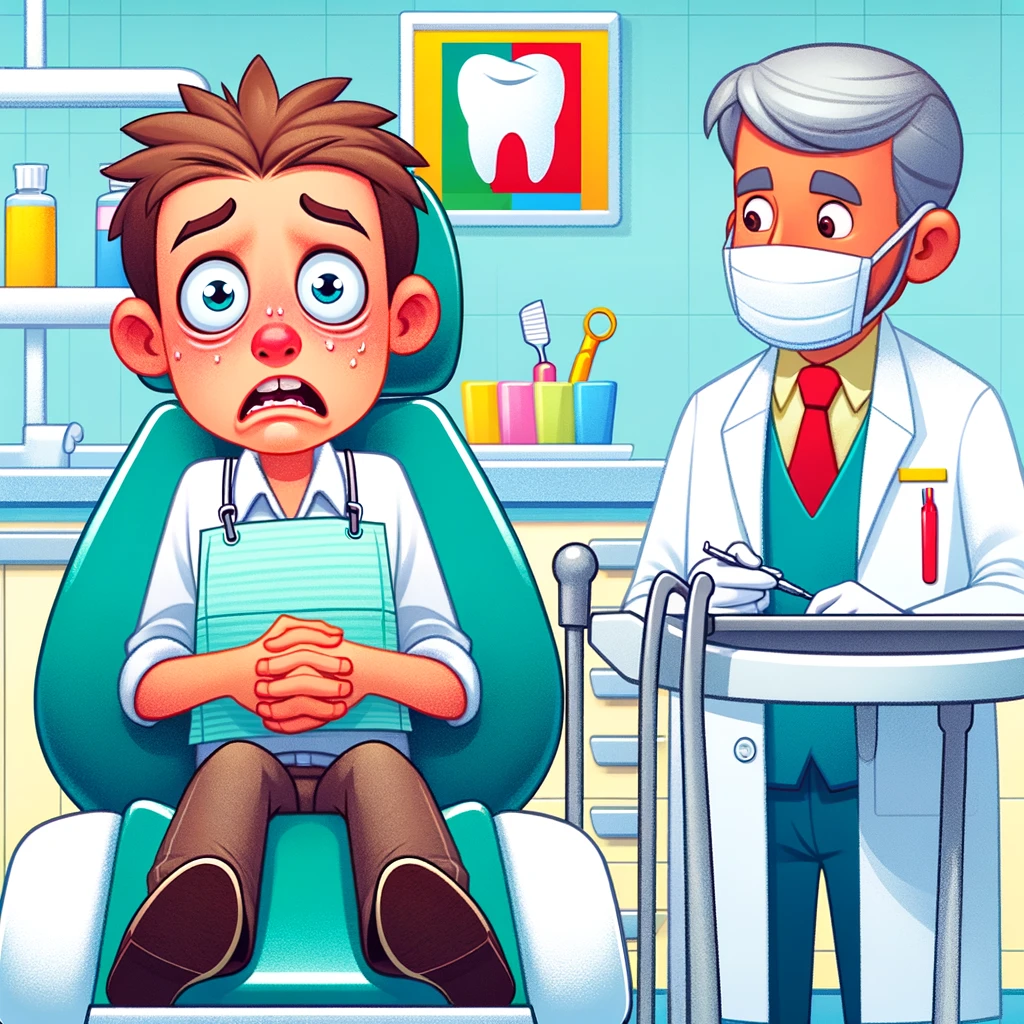Nearly 36% of the population suffers from dental anxiety, with an additional 12% experiencing extreme dental fear. This widespread issue can lead to individuals avoiding dental visits, resulting in neglected oral health and the exacerbation of dental problems.
Overcoming dental anxiety is not only vital for maintaining optimal oral health but also for ensuring overall well-being.
This blog post aims to shed light on the root causes of dental anxiety and offers practical strategies for conquering these fears, encouraging readers to embrace dental care with confidence.
Table of Contents
What is Dental Anxiety?

Dental anxiety, also known as dental phobia or odontophobia, is a common psychological condition characterized by fear, nervousness, or stress associated with visiting the dentist or receiving dental care. It can range from mild uneasiness to severe phobia, causing individuals to avoid or delay dental appointments, which can ultimately lead to poor oral health.
Dental anxiety can manifest as a fear of specific dental procedures, such as injections or drilling, or as a more generalized fear of the entire dental experience.
Common Symptoms and Signs of Dental Anxiety
- Feelings of uneasiness or nervousness before a dental appointment
- Panic or dread when entering the dental office
- Difficulty sleeping the night before a scheduled dental visit
- Physical symptoms such as increased heart rate, sweating, or trembling during dental procedures
Impact of dental anxiety on oral health
Dental anxiety can have detrimental effects on oral health. Individuals with dental anxiety are more likely to neglect their oral hygiene, leading to conditions such as gum disease, tooth decay, and eventual tooth loss. The avoidance of regular dental checkups and treatments can exacerbate existing oral health issues, resulting in the need for more invasive and extensive procedures in the future.
What Causes Dental Anxiety?
Several factors contribute to dental anxiety, each playing a unique role in how individuals perceive and experience dental care.
Previous Negative Dental Experiences
Negative encounters with dentists or traumatic dental procedures in the past can contribute to the development of dental anxiety. These experiences may create a lasting impression and instill fear or apprehension about future dental visits.
Fear of Pain or Discomfort
The fear of experiencing pain or discomfort during dental procedures is a common cause of dental anxiety. This fear may stem from previous painful dental experiences or stories heard from others.
Embarrassment or Self-Consciousness
Feelings of embarrassment about the condition of one’s teeth or fear of being judged by the dental team can also lead to dental anxiety. Individuals may feel self-conscious about the appearance of their teeth or the potential need for extensive dental work.
Lack of Control or Feeling Vulnerable
The sense of vulnerability and lack of control during dental procedures can trigger anxiety in some individuals. The physical proximity of the dentist, the use of dental instruments, and the inability to see what is happening inside the mouth can contribute to feelings of helplessness.
The Importance of Overcoming Dental Anxiety

Here are some of the advantages of overcoming dental anxiety:
Impact of Dental Anxiety on Oral Health
Unaddressed dental anxiety can have a profound impact on oral health, leading to the deterioration of teeth and gums. Poor oral health can also affect overall well-being, as oral infections and inflammation have been linked to systemic health issues such as heart disease and diabetes.
Benefits of Regular Dental Checkups and Treatments
Overcoming dental anxiety is crucial for maintaining good oral health. Regular dental checkups and treatments can help prevent oral problems from escalating, allowing for early detection and intervention. This proactive approach can ultimately reduce the need for extensive and costly dental procedures in the future.
To ensure you receive compassionate and understanding care that addresses any anxieties, consider Kumra Orthodontics, recognized as the best orthodontist in DC. Their experienced team is committed to creating a comfortable and anxiety-free environment for all their patients.
Long-Term Consequences of Avoiding Dental Care
Avoiding dental care due to anxiety can result in the progression of oral health issues, leading to chronic pain, difficulty eating, and a diminished quality of life. Ultimately, the avoidance of dental care can exacerbate existing dental problems, necessitating more invasive and complex treatments down the line.
Strategies for Overcoming Dental Anxiety
Several effective strategies exist to help individuals overcome dental anxiety, paving the way for healthier smiles and a more positive dental experience.
Finding a Supportive and Understanding Dentist
Choosing a dentist who is empathetic and understanding of dental anxiety is essential. A supportive dental team can create a calming and reassuring environment, helping to alleviate anxiety and build trust.
Open Communication and Building Trust with the Dental Team
Openly communicating fears and concerns with the dental team can foster a sense of trust and understanding. Dentists and dental staff can tailor their approach to accommodate the needs of anxious patients, providing reassurance and guidance throughout the dental visit.
Gradual Exposure and Desensitization Techniques
Gradual exposure to dental environments and procedures, coupled with desensitization techniques, can help individuals overcome their fear of dental visits. This approach involves gradually increasing exposure to dental stimuli while employing relaxation and coping strategies to manage anxiety.
Relaxation and Mindfulness Techniques
Practicing relaxation techniques such as deep breathing exercises, meditation, or visualization can help manage anxiety during dental appointments. These techniques can promote a sense of calm and reduce the physiological symptoms of anxiety.
Utilizing Sedation Options for Severe Dental Anxiety
For individuals with severe dental anxiety, sedation options such as nitrous oxide (laughing gas) or oral sedatives can be considered to induce a state of relaxation and calmness during dental procedures.
Conclusion
Dental anxiety is a prevalent concern that can significantly impact an individual’s oral health and overall well-being. By understanding the root causes of dental anxiety, recognizing its importance, and implementing effective strategies for overcoming it, individuals can take proactive steps towards managing their anxiety and accessing the dental care they need. With the right support, preparation, and dental care, individuals can conquer their dental anxiety and maintain optimal oral health.
One thought on “Understanding and Overcoming Dental Anxiety”
Comments are closed.
Thank you for any other informative site. Where else could I am getting that kind of information written in such an ideal approach? I’ve a mission that I am simply now operating on, and I have been at the glance out for such info.